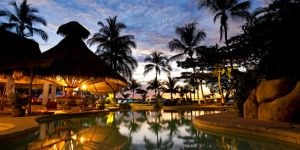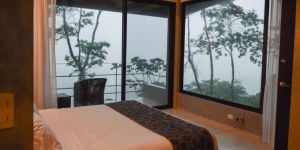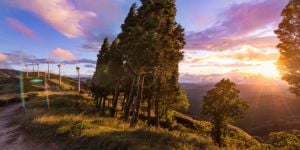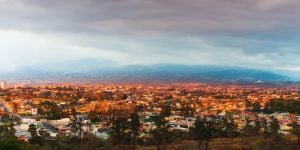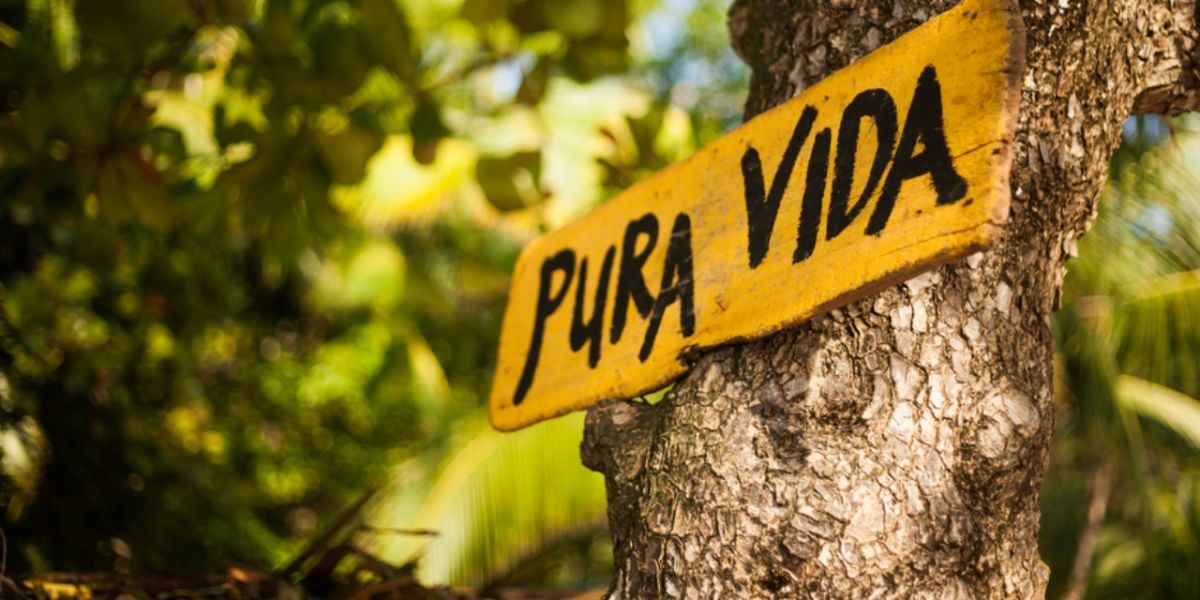
Many retirees are attracted by Costa Rica’s stable democracy, excellent healthcare, enjoyable climate, natural beauty and hospitable locals. Read this article to find out why and how to retire in Costa Rica.
Costa Rica's https://www.expat.community continues to grow, and increasing numbers of retirees have chosen to live their golden years in pockets around the country. The country's natural beauty means that volcanoes, beaches and rainforests are often only a few hours' drive away, and you can fill your retirement with activities such as wildlife watching, hiking and gardening; or you could even join a local group, such as a theatre company or the Rotary Club.
Considering that most pensioners have a fixed income to live on, the country's relatively low cost of living is another practical drawcard. Housing and general day-to-day costs tend to be affordable, and it is possible to live frugally on US$750 per month, while US$1,500 will buy you a very comfortable lifestyle. If you need to keep to a budget, you can save money (and eat healthy, delicious food) by stocking up on fresh produce at local farmers' markets for very reasonable prices.
Healthcare in Costa Rica is also considerably less expensive than in certain western nations, such as the United States, and retired residents can receive private or even public healthcare. Whatever option you choose, the facilities are modern and affordable, and the medical personnel tend to be highly trained. If you become a resident, you will need to pay around US$30 a month into the public healthcare system, whereas private insurance can cost up to around US$100 monthly, but will afford you access to world-class doctors and hospitals across the country.
Requirements
To retire in Costa Rica, you will need to apply for a retirement visa. To qualify for a pensionado (retiree) visa you will need to show proof of receiving a monthly retirement income of at least US$1,000 from a pension fund, which you will need to exchange into Costa Rican Colónes (CRC).
If you don't have a guaranteed fixed income to support you during retirement, you can apply for rentista (annuity holder) residency instead, so long as you can make a US$60,000 deposit into a Costa Rican bank.
To acquire any retirement visa, you will need to submit various documents (translated in Spanish) to the Department of Immigration, such as an income certificate that proves your pension, a birth certificate, and a police certificate of good conduct that states you are a law-abiding citizen (this certificate expires after six months of issue so it's best to request this only once you have everything else to hand). Do note that all required documents will need to be valid for at least six months after your visa has been issued.
Once you are in Costa Rica, you will also need to be fingerprinted so that a background check can be done.
Your pensionado visa will need to be renewed every three years. Alternatively, after you have lived in the country for three years, you can apply for permanent residency, which will mean you have almost all the rights of a Costa Rican.
As a pensionado or rentista, you will not be permitted to work in Costa Rica, but you can own a business from which you can earn an income. As a foreigner, you will also have the rights to own a property if you so wish, and your home purchase will be registered in the National Registry of Costa Rica to provide you with investment security. Furthermore, property tax in Costa Rica is only around 0.25%, and there is no Capital Gains Tax.
Where to live
Central Valley
Located in the centre of the country, surrounded by mountains, the Central Valley region is close to the capital and offers convenience, a temperate climate, and mountain views. This region boasts springtime temperatures, which means you can say goodbye to the winter blues! And living here allows you to be part of a vibrant https://www.expat.community, close to the airport and hospitals, and have everything you need in easy reach. You won't even need to have your own car, as there is so much to do on your doorstep, as well as an efficient public transport system. You can even catch a bus to soak up some culture at a museum or the theatre in San José.
If you want amenities and a faster pace of life, it's worth considering larger towns, such as Alajuela, Heredia and Cartago. Whereas if you're looking for a more laidback lifestyle, while still having an https://www.expat.community and great shopping options to hand, you may prefer the farming towns of Atenas, San Ramón or Grecia.
The only downside is that the Central Valley is not the cheapest region in the country, although you can still live well on less than US$2,000 a month. And the comfortable climate means you'll have a small utility bill, thanks to not needing central heating or air conditioning.
Nicoya Peninsula and the Northern Pacific
If the sound of the Pacific Ocean lapping golden sand is calling to you, head to the northern Pacific coast of Costa Rica and the adjacent Nicoya Peninsula, where you can enjoy a tranquil beach existence.
Despite continual development and an influx of tourists, life in the Guanacaste province remains affordable. And, even though you won't have all the conveniences of the Central Valley, there are enough modern amenities to keep you comfortable in this corner of the country. You'll also be close to Liberia, where you can find the Hospital Clínico San Rafaél Arcángel (one of the country's leading public hospitals), as well as the Daniel Oduber Quirós International Airport, which means the region is easily accessible and offers good medical care if you need it.
Enjoy a healthy lifestyle in this hot and dry climate where the sun shines almost every day of the year. Interestingly, the water in this region has the highest calcium content in the country, which is good for bone health, and the diet in the region is high in fresh produce.
The Southern Zone
Marvel at the splendor of the Pacific Ocean, as well as jungle-covered mountains and thick rainforest on the southern Pacific coast, commonly known as the Southern Zone, which stretches all the way to Panama. Located about four hours from the capital, this region offers an unspoiled seaside wilderness and a laidback beach lifestyle. Although development is small-scale, modern conveniences are still available, and the coastal highway has opened up the area to foreigners (although a four-wheel drive is still required to access certain dirt roads that are in poor condition).
Most expats live in and around three main towns in this region ' Dominical, a small surf village and the gateway to the region; Uvita, the commercial hub; and Ojochal, the jungle village that is known for top-notch restaurants that are run by epicurean expats.
The Carribean Coast
The settled part of this coast stretches south from the port city of Limón and you'll find some of the most unspoiled beaches in Costa Rica, where you can relax listening to reggae in bars with cold beers or swing lazily in a hammock in between swims in the clear waters.
The coastline has an island vibe, and you can enjoy the food, music, and language that is unique to the area. The region can be warm and humid, but sea breezes help keep you cool, and temperatures drop in the evening.
The coast is largely undeveloped so businesses tend to be small, from yoga studios to seafood restaurants (seafood is cheap, as many locals go fishing daily). However, services aren't as reliable as in other parts of the country ' short power outages are a common occurrence, and the internet isn't always steady. Furthermore, if you have a medical condition that requires regular specialist attention, then this is a difficult place to live as there is only basic care, and the nearest hospital is over an hour's drive away.
Arenal
Home to Costa Rica's largest volcano and freshwater lake, the small town of Arenal is perfect for those looking for a laidback retirement who love the great outdoors. From hiking and mountain biking to paddle boarding, there's always something to do in this rural setting with its tight-knit https://www.expat.community.
The surrounding mountains also provide a pleasant climate, and the rich volcanic soils make this a superb place for gardening if you have green fingers. There are also weekly ferias in different towns in the area where you can buy fresh produce for cheap.
Useful links:
Expat.com ' Formalities in Costa Rica Forum
Dirección General de Migración y Extranjeria www.migracion.go.cr
Hoja de filiación www.migracion.go.cr/extranjeros/residencias
CCSS - Costa Rican Social Security www.ccss.sa.cr
Ministerio de Gobernación, Policía y Seguridad Publica www.seguridadpublica.go.cr
Seguro Voluntario portal.ccss.sa.cr
We do our best to provide accurate and up to date information. However, if you have noticed any inaccuracies in this article, please let us know in the comments section below.
